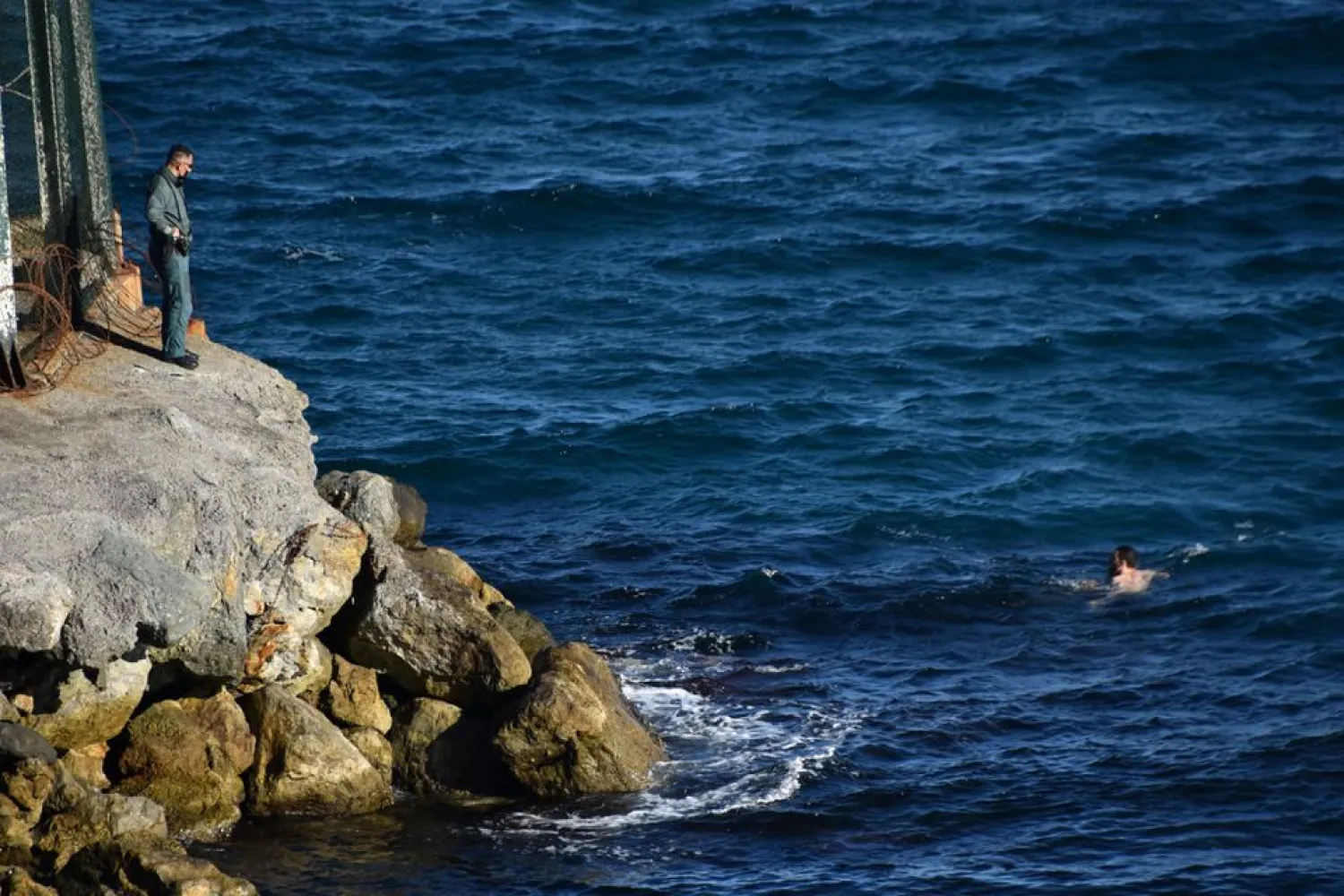The Spanish government has deployed troops to Ceuta to patrol the border with Morocco after thousands of migrants swam into the northern African enclave, a source from the Interior Ministry said on Tuesday.
Soldiers will patrol the border along with Spanish police.
"This starts immediately," the source said, without specifying how many troops will be deployed.
A spokesman for Ceuta's government delegation said soldiers will work with police in sensitive locations within the enclave to maintain order on the streets.
As many as 6,000 Moroccans, including about 1,500 minors, swam into Ceuta on Monday and Tuesday, Interior Minister Fernando Grande-Marlaska said.
One person died in the attempt, a Spanish government delegation spokesman said.
The adult arrivals are being transferred to a local football stadium to be handed back to Morocco. Minors are being sent to an industrial building.
Ceuta, with a population of 80,000, is an enclave located on the northern tip of Morocco across from Gibraltar.
The Spanish enclaves of Ceuta and nearby Melilla on Morocco's northern coast have long been a magnet for African migrants trying to reach Europe in search of a better life.
Spanish TV channel 24h reported on Tuesday morning that as many as 85 migrants climbed the border fence to break into Melilla, which is located about 300km east of Ceuta on the Moroccan shore.
The arrival of the migrants took place at a time of increased tension between Spain and Morocco over the fate of Brahim Ghali, the leader of the Western Sahara's Polisario Front, who is in hospital in Spain.
Morocco's Foreign Ministry issued a strongly worded statement last month deploring what it said was the decision of Spain to admit Ghali under a false identity without informing Morocco, adding that the situation would have repercussions for relations between the countries.
The United States in December recognized Moroccan sovereignty over the Western Sahara territory, which is also claimed as an independent state by the Polisario Front.
Ghali is hospitalized in Spain, a Spanish diplomatic source told Reuters.
Ghali was accepted into Spain on humanitarian grounds, Spanish Foreign Minister Arancha Gonzalez Laya told Cadena SER radio on Monday evening.









